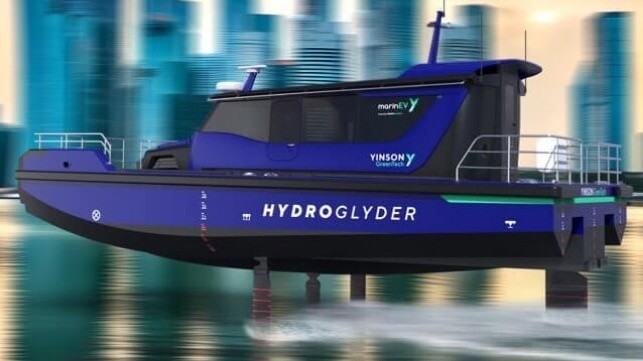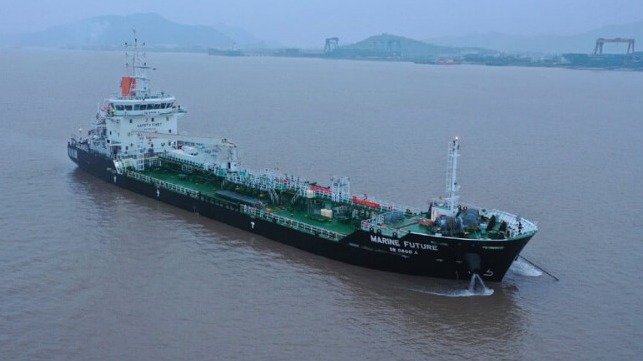Singapore Selects 11 Designs in Effort to Promote Electric Harbor Crafts

Singapore’s Maritime and Port Authority has selected 11 design proposals as part of its ongoing competition to develop advanced electric harbor crafts. The authority reports it received strong interest in the effort designed to promote the adoption of fully electric harbor craft demonstrating the strong interest and confidence of the industry in the development of this new generation of vessels.
The initiative launched in July 2023 as part of the efforts to advance decarbonization in one of the busiest ports in the world and at the same time promote the adoption of electrification as a means of addressing the challenges. The MPA reports it received a total of 55 proposals from 32 international and local companies and consortia.
Participants submitted technically strong designs according to the MPA, including the use of optimized aluminum hull form, high energy density batteries with active liquid cooling, and battery thermal detection and protection system, among others.
One of the key concerns that they also sought to address is the total cost of ownership for electric vessels with the goal of making them comparable to a conventional harbor craft. Participants in the program demonstrated that while electric harbor crafts currently have higher upfront capital costs due primarily to the higher cost of the batteries and associated systems, the MPA says these costs can be mitigated by energy cost savings from operating the more energy-efficient e-harbor crafts, reduced maintenance cost, and operational downtime.
Several of the participants also proposed business models to optimize the harbor craft resource at the sector level while lowering the overall total cost of ownership to individual companies. According to the MPA, these proposals aim to encourage more companies, especially those with smaller fleet sizes, to make the transition, by presenting viable business cases based on aggregation, while enabling an efficient and responsive sector-level capability to meet the needs of ships calling into Singapore.
The panel completed the evaluation of all the proposals and the MPA has shortlisted a total of 11 passenger launch and cargo lighter vessel designs submitted by seven companies and consortia. Of the 11 designs selected, six have received class society approvals. Together with various research institutes and academia, the MPA looks to support more research to enhance vessel designs, safety, and cybersecurity, and reduce the energy requirements.
Six designs were submitted by the Coastal Sustainability Alliance, marinEV, and Pyxis Maritime, which demonstrate a strong understanding of Singapore’s requirements in areas including battery specifications, digital and cyber systems, training requirements, and development of local capability. These participants will be working directly with MPA and its researchers over the next two to six months to optimize and validate their designs.
The five additional proposals selected were submitted by CAEV+ Consortium, China Everbright Environment Group, Cyan Renewables Consortium, and Gennal Engineering. MPA reports it will also work with these participants, together with the various researchers and universities, to further develop the designs. The scope of enhancements will include optimization of the vessel hull and electrical systems design, the design of a fire-resilient battery room, and a cyber health monitoring system, to strengthen the vessels’ energy efficiency and safety.
Vitol Introduces Dedicated Biofuel Bunker Barge in Singapore to Meet Demand

Asia’s market for biofuels is expanding rapidly and to take advantage of the emerging opportunities, Vitol, one of Singapore’s leading fuel suppliers has taken delivery of its first specialized bunker vessel. The company looks to take advantage of the emerging opportunity and last fall reported the first vessel would be the first of several specialized bunker barges placed into service.
“Though at a nascent stage, demand for biofuel is expected to grow significantly in the coming years, as the shipping industry looks at ways to decarbonize and curb emissions,” says Vitol. They point to the International Maritime Organization’s interim regulations released last October as another factor likely in the near term to spur growth in biofuels.
“Biofuels are a key pathway for the hard-to-abate shipping sector to mitigate emissions,” the company notes.
As a result, the Maritime and Port Authority of Singapore which controls the bunker market, reported that last year sales of biofuel increased by nearly four times. They reported biofuel sales in Singapore reached 520,000 tons in 2023 up from just 140,000 tons in 20222.
Vitol recently introduced the Marine Future, a nearly 335-foot (102-meter) bunker vessel in Singapore. The vessel was specifically designed for the biofuel sector and built in China. It has the capacity to carry about 7,000 MT of biofuels and in the future can also be re-configured to supply methanol.
It is the first bunker tanker in Singapore to have the appropriate design and designation to deliver 100 percent bio-component fuels. The previous vessels in the market are all oil tankers, and Vitol points out that regulations restrict them to a maximum of 25 percent biofuel component in biofuel blends.
Through its V-Bunkers operation, the company already operates more than 20 bunker barges based in Singapore. They anticipate the new vessel will contribute to the continuing rapid growth in biofuel sales. Starting with the Marine Future, Vitol can offer a range of biofuel blends.
No comments:
Post a Comment